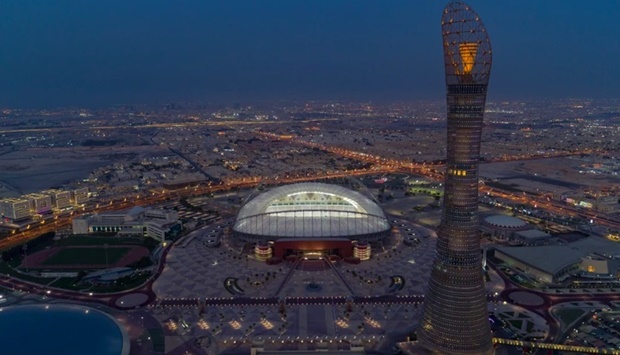When Khalifa International Stadium hosts matches during this year’s FIFA World Cup, it will be the culmination of a journey that started 46 years ago.
The country’s national stadium was inaugurated in 1976 and has since hosted a number of major events, including the Arabian Gulf Cup, AFC Asian Cup, the Asian Games, FIFA Club World Cup and IAAF World Athletics Championships.
Khalifa International will be one of eight tournament venues during Qatar 2022 and holds the distinction of becoming the first tournament-ready stadium after being reopened in 2017 following an extensive redevelopment.
Ali Al Mansoori was Khalifa International’s Venue Manager for more than 30 years. He has seen the venue grow into a world-class facility and was part of the team that managed the stadium’s relaunch ahead of the 2017 Amir Cup final between Al Sadd and Al Rayyan.

“I remember that we hardly slept in the week leading up to the match,” said Al Mansoori. “We were so excited to host the Amir Cup – but also because this marked the completion of the renovation ahead of the World Cup. However, the one thing that really took our breath away that night was our ability to cool the stadium and provide a comfortable experience for players and fans.”
It was 38C outside the stadium but only 22C in the stands and on the pitch. This was thanks to the innovative cooling technology developed by Qatar ahead of the FIFA World Cup™ and installed – for the first time – at Khalifa International. Further renovations included the addition of 12,000 seats in the upper tier and dozens of hospitality suites. The stadium now stands ready to host eight matches during Qatar 2022, including the third-place play-off.
A scene of triumph for the Maroons
“The stadium shook that day from the intensity of the support we received. It’s a moment I’ll never forget for the rest of my life.”

Legendary Qatar goalkeeper Ahmed Khalil looks back on his favourite moment at Khalifa International – when Al Annabi claimed its first Arabian Gulf Cup in 1992 to break the hegemony of Kuwait and Iraq, who between them had won all ten previous editions of the prestigious regional tournament.
Khalil continued: “Without a doubt, my most memorable moment came when we lifted the first Gulf Cup in Qatar’s history. The stands were packed that day – not only with Qataris but with everyone that lived in the country. It painted a really beautiful picture of the way football brings people together,” added Khalil, who was named the tournament’s best goalkeeper after conceding just one goal.
Khalil – a Qatar Legacy Ambassador – is now excited for the stadium to host fans from across the globe when Qatar stages the 22nd edition of international football’s showpiece event.
“As the World Cup draws nearer, I am so excited for fans from around the world to come and see this monumental stadium and feel the same level of excitement and passion that we have been associating with this iconic venue for decades,” added Khalil.
Qatar’s national stadium in the heart of Doha Sports City
Khalifa International is now the centrepiece of a sprawling sports complex. Next door is Aspire Zone, which trains Qatar’s next generation of sporting talent, along with the globally-renowned Aspetar sports medicine hospital, and Aspire Dome, the world’s largest multipurpose indoor sports hall.
The stadium is also connected to Sports City metro station, which will provide easy access for fans during the most compact FIFA World Cup™ in modern history.
“Today, Khalifa is geographically set in the middle of all eight World Cup stadiums, taking its rightful place as the centerpiece of the tournament. It is Qatar’s national stadium and will always be synonymous with the beautiful game in this country,” said Al Mansoori.
Khalifa International Stadium will host the 50th edition of the Amir Cup final on Friday 18 March.

